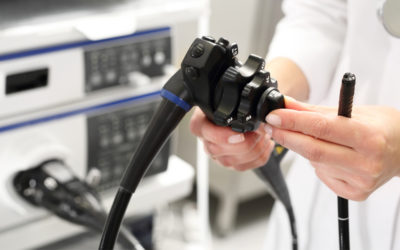Gastroenterology
A healthy digestive system is essential for the body to function properly. When an illness or disease interrupts this, it can be painful and frustrating. Fortunately, Heartland Regional Medical Center offers gastrointestinal (GI) services to help prevent, detect, and manage digestive diseases and disorders of the pancreas, liver, gallbladder, esophagus, stomach, small intestine and colon. Heartland Regional Medical Center’s goal is to get you back to loving and living life as soon as possible.
Heartland Regional Medical Center treats the following conditions/diseases:
- Irritable bowel syndrome (IBS)
- C-diff
- Inflammatory bowel disease (IBD)
- Diarrhea and Constipation
- GERD/acid reflux disease
- Abdominal pain
- Hepatitis C
- Ulcerative colitis
- Crohn’s disease
- Celiac disease
- Dysphagia (difficulty swallowing)
- Fecal incontinence
Physical signs can tell you that you might have a digestive condition requiring medical attention. Symptoms might include:
- Acid taste in your mouth
- Belching and gas
- Bloating
- Burning in your stomach
- Inconsistent bowel movements
- Nausea and vomiting
- Stomach and abdominal pain
One of the most common symptoms of a digestive disorder is heartburn. Gastroesophageal reflux disease (GERD), also known as acid reflux disease, affects about 50 million people in the U.S. GERD can cause painful swallowing, nausea, heartburn and can even lead to cancer in some cases. Reflux happens when the valve between your stomach and the esophagus does not close properly. Many people suffering from GERD try antacids or prescriptions, which block the production of acid in the stomach and also protect the throat from damage. In addition to medication, eating smaller meals, sleeping on an incline and eliminating acidic foods from your diet may alleviate symptoms. However, when medication and lifestyle changes are not providing relief, it may be time to consider surgical treatment.
To diagnose possible digestive issues, you may need to see Heartland Regional Medical Center’s gastroenterologist who specializes in [upper GI endoscopy], a simple outpatient procedure to help diagnose and treat problems with the esophagus, stomach, upper intestine or first part of the small intestine (duodenum).
Another diagnostic test managed by your gastroenterologist is your colonoscopy screening. Colorectal cancer is the 3rd most common cancer in both men and women in the U.S. and the second leading cause of cancer death. The good news? Colorectal cancer is also highly preventable with early detection and treatment.
If you are 45 or older, or have a family history of colorectal cancer, the most effective way to reduce your risk is to schedule a screening colonoscopy. This test searches for potentially cancerous polyps, abnormal cell growths on the inside lining of the colon or rectum. Catching these polyps can stop them from ever becoming cancer or detect cancer when it is most treatable.
Schedule a Consulation
Call 618-998-7155
Related Services and Conditions
Colonoscopy
Colorectal Cancer Screening and Colonoscopy Prep Although colorectal cancer is one of the most common cancers in the United States, it often goes undetected, according to the American Cancer Society. Symptoms do not usually occur until the disease is advanced and 75%...
Gallstones
Experiencing a sharp pain in your upper right abdomen? A lot of people do - it's possible something has gone wrong with your gallbladder. Nearly one million Americans have gallstones every year, according to the American Gastroenterological Association.Symptoms of...
Irritable Bowel Syndrome (IBS)
Often misunderstood, irritable bowel syndrome (IBS) is a common gastrointestinal condition that deserves more attention. You’re plagued with sudden and unexplained stomach cramps. You feel anxious when you know you’ll be without a bathroom for an extended period of...
GERD
Tired of that burning sensation in your chest -- particularly at night? Could your painful swallowing, nausea, heartburn be caused by Gastroesophageal reflux disease (GERD)? If you experience a burning sensation in your chest, sometimes spreading to your throat, along...




